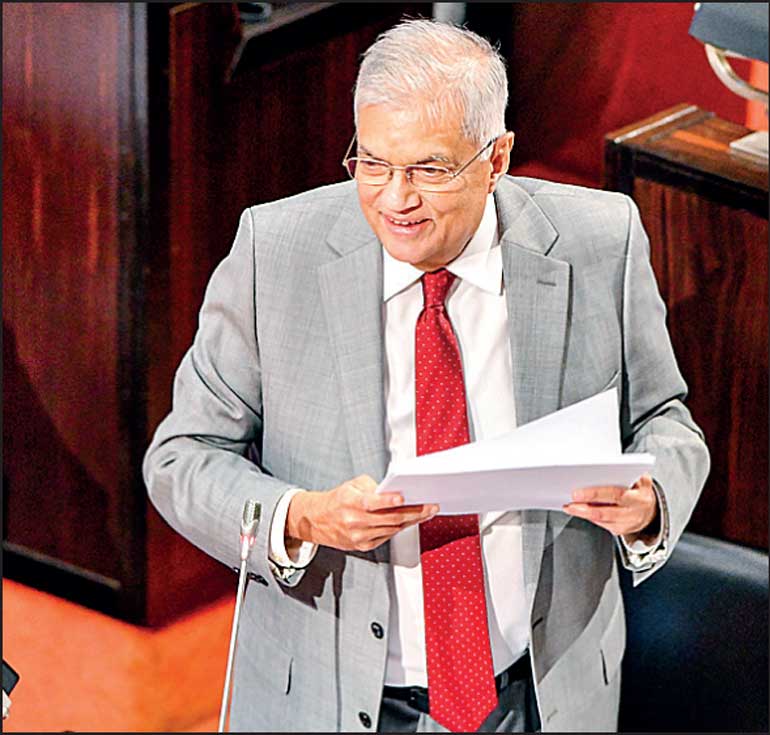Tuesday Feb 17, 2026
Tuesday Feb 17, 2026
Wednesday, 22 November 2023 00:10 - - {{hitsCtrl.values.hits}}

Sri Lanka’s approach to digitalisation needs to be addressed in a holistic and comprehensive manner
 The President’s 2024 Budget speech outlines plans for a “new growth model…based on a digitalised social market economy.” The plan also mentions effectiveness, equitability and green growth as key aspects of this new model. Digitalisation and digital connectivity are critical for economic development, so let’s focus on just the digital components of the Budget announcements and what this means for building a digital economy in Sri Lanka.
The President’s 2024 Budget speech outlines plans for a “new growth model…based on a digitalised social market economy.” The plan also mentions effectiveness, equitability and green growth as key aspects of this new model. Digitalisation and digital connectivity are critical for economic development, so let’s focus on just the digital components of the Budget announcements and what this means for building a digital economy in Sri Lanka.
Digital economy 2024 Budget proposals
The Government plans to allocate just Rs. 3 billion or 1.4% of total expenditures to digital and digitalisation efforts in 2024, with the aim of growing into a $ 15 billion digital economy by 2030. The main proposals outlined to help achieve these targets are as follows:
In addition to these proposals, the Government has a few other specific digitalisation efforts in relation to tax compliance, trade, and education.
Digital economy 2023 Budget proposals
In 2022, the Budget speech outlined the following proposals:
From what is publicly available information, it looks like progress was made in two of the items – 1) the Data Protection Authority is on its way to being set up with the board being recently appointed, and 2) activities related to improving the RAMIS system seem to be ongoing, on the basis that it will be connected to other Government systems by December this year. Perhaps the subsidy for fishing vessels was doled out, and (some) schools were connected to the internet. But there is no knowing as who actually keeps track? And how do we know if any of these activities had the intended impact?
Digital economy Budget proposals from 2017-2022
Going back over eight years, there are various digital economy related Budget proposals that were considered. They can be loosely categorised into government digitisation efforts (e-government services, connected government offices, open government partnership, national payment platform, etc.), education reforms (smart classrooms, free tabs, free WiFi, tech courses, etc.), innovation (tech parks, innovation centres, telemedicine program, blockchain for efficiency, etc.), trade (national single window for trade), and tech sector-specific proposals (introduction of tower taxes, PPP for tower ownership, increase of telecoms levy on data services, removal of international telecom operator levy, removal of tax exemptions on devices and equipment, etc.). A total of approximately Rs. 70 billion was requested for allocation to digitalisation efforts over this eight-year period.
It is difficult to track which ones saw light of day and which did not. Many are still relevant but have either completely dropped off the radar, or are still in progress, or have been implemented with no monitoring and evaluation for effectiveness. For instance, the national single window for trade has made an appearance in this year’s Budget again – it is the fourth time it has been proposed since 2016. What becomes of the funds allocated to this project leaves one wondering?
Is Sri Lanka on track to achieve digital transformation?
Taking stock of these proposals, it is evident that there has been no concerted and systematic effort at building a digital economy in Sri Lanka.
First of all, so many of the proposed activities are not aligned with achieving true digital transformation – regressive tax policies on the tech sector (think tower taxes and international calling taxes) coupled with feel-good but unsustainable digital literacy programs (free internet at schools, smart classrooms, etc.), and poorly designed and implemented government digitisation efforts. Secondly, when some of the proposals announced one year see no progress at all and tend to drop off the radar of the Government altogether, while others tend to be repeat proposals due to slow progress in implementation.
There has been no whole-of-government effort to equip Sri Lanka with the right tools, skills and attitudes to achieve digital economic success. What exists is a piecemeal, ad hoc approach that does little for Sri Lanka’s overall prospects for digital economic development. It goes without saying that it has been the private sector and the grassroots civil society organisations that have been instrumental in making sure Sri Lanka stays somewhat relevant digitally thus far.
What needs to be done to achieve a truly digital Sri Lanka?
Sri Lanka’s approach to digitalisation needs to be addressed in a holistic and comprehensive manner.
In terms of policy, Sri Lanka has yet to stick to one long-term policy plan in relation to its digital development. There has been no shortage of policies and visions in the recent past – in 2018 McKinsey developed a Digital Economy Strategy, following which a National Digital Policy was drafted by the Ministry of Digital Infrastructure and Information Technology in 2019, both of which came to naught. Around the same time, the Export Development Board issued targets for the ICT Sector under its National Export Strategy with the aim of reaching US$ 5 billion in revenue, creating 200,000 direct jobs and 1,000 start-ups by 2025. The ICTA and the Ministry of Technology have since issued the National Digital Government/Governance Policy for Sri Lanka to guide the work ICTA does. And now the Ministry of Technology is compiling a National Digital Economy Strategy, with support from the World Bank. Hopefully this policy document will be open to the public for consultation before being issued as the primary guiding blueprint to support the Government’s digital economy aspirations until 2030.
For this policy to have any success, there is a need for an overarching body to oversee the major changes that will need to be made across Government, industry and society. One body should do, yet this year’s Budget proposes the creation of three different entities to address different aspects of digitalisation (one for digital government initiatives, one for innovation, and another for AI). Creating three entities in Sri Lanka will only mean more layers of bureaucracy to be untangled before we can focus on any form of digital development.
There is clearly a need for improving Government digitisation efforts – this was the very reason that the ICTA was set up in the first place. However, ICTA does not have the teeth nor the funds to achieve its mandate, so the question begs to be asked – how will setting up another authority address the problems faced by the ICTA in its efforts to digitise Government?
Furthermore, there is no discussion of what will be done with existing policy and regulatory frameworks and the roles of existing authorities such as the TRCSL and ICTA, the Ministry of Media or the Ministry of Technology, in the face of digital transformation. The Sri Lanka Telecommunications Act of 1991 (last amended in 1996) needs to be overhauled. This has been in the works since 2010 or thereabouts, but is yet to come to fruition. A new and revised Broadcasting Act needs to be introduced. The Data Protection Authority and the Cybersecurity Authority need to be established without any delays.
Taking a leaf out of Singapore’s efforts as an exemplary and mature digital economy, the Government established the Smart Nation group, which is part of the Prime Minister’s Office and administered by the Ministry of Communications and Information, to guide its digital transformation initiatives and lead the development of Smart Nation strategies. This is the apex body working in partnership with industry, civil society and other interested parties to drive government-wide digital transformation.
If Sri Lanka is to achieve success, then much of the work to support the development of the digital economy lies in getting these basics right. Not much can be done if the various governance frameworks, policies, rules and regulations, and most importantly, attitudes, stay outdated and uncoordinated.
(The writer is an independent consultant working on tech and connectivity policy in Asia Pacific.)